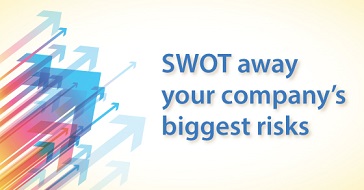Conducting a year-end risk assessment? Try this.
- Details
- Published: Wednesday, 09 January 2019 07:47
- Written by Phillip Strickler, CPA.CITP



Turn on your computer or mobile device, scroll through Facebook or Twitter, or skim a business-oriented website, and you’ll likely come across the term “emerging technologies.” It has become so ubiquitous that you might be tempted to ignore it and move on to something else. That would be a mistake.
In today’s competitive business landscape, your ability to stay up to date — or, better yet, get ahead of the curve — on the emerging technologies in your industry could make or break your company.
Watch the competition
There’s a good chance that some of your competitors already are trying to adapt emerging technologies such as these:
Machine learning. A form of artificial intelligence, machine learning refers to the ability of machines to learn and improve at a specific task with little or no programming or human intervention. For instance, you could use machine learning to search through large amounts of consumer data and make predictions about future purchase patterns. Think of Amazon’s suggested products or Netflix’s recommended viewing.

With the dawn of 2019 on the near horizon, here’s a quick list of tax and financial to-dos you should address before 2018 ends:
Check your FSA balance. If you have a Flexible Spending Account (FSA) for health care expenses, you need to incur qualifying expenses by December 31 to use up these funds or you’ll potentially lose them. (Some plans allow you to carry over up to $500 to the following year or give you a 2½-month grace period to incur qualifying expenses.) Use expiring FSA funds to pay for eyeglasses, dental work or eligible drugs or health products.
Max out tax-advantaged savings. Reduce your 2018 income by contributing to traditional IRAs, employer-sponsored retirement plans or Health Savings Accounts to the extent you’re eligible. (Certain vehicles, including traditional and SEP IRAs, allow you to deduct contributions on your 2018 return if they’re made by April 15, 2019.)
Take RMDs. If you’ve reached age 70½, you generally must take required minimum distributions (RMDs) from IRAs or qualified employer-sponsored retirement plans before the end of the year to avoid a 50% penalty. If you turned 70½ this year, you have until April 1, 2019, to take your first RMD. But keep in mind that, if you defer your first distribution, you’ll have to take two next year.

Those who run family-owned businesses often underestimate the need for a succession plan. After all, they say, we’re a family business — there will always be a family member here to keep the company going and no one will stand in the way.
Not necessarily. In one all-too-common scenario, two of the owner’s children inherit the business and, while one wants to keep the business in the family, the other is eager to sell. Such conflicts can erupt into open combat between heirs and even destroy the company. So, it’s important for you, as a family business owner, to create a formal succession plan — and to communicate it well before it’s needed.
Talk it out
A good succession plan addresses the death, incapacity or retirement of an owner. It answers questions now about future ownership and any potential sale so that successors don’t have to scramble during what can be an emotionally traumatic time.
The key to making any plan work is to clearly communicate it with all stakeholders. Allow your children to voice their intentions. If there’s an obvious difference between siblings, resolving that conflict needs to be central to your succession plan.